CCNA vs CCNP : Cisco Certification Comparison
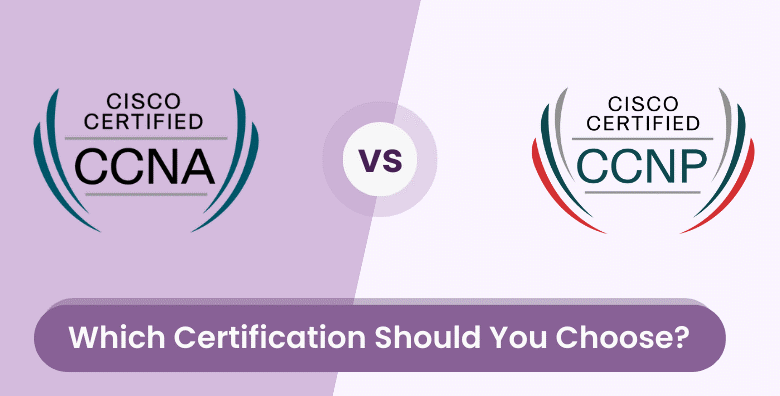
Are you pondering which Cisco certification could catapult your networking career to new heights? CCNA vs CCNP—two powerful contenders—present enticing opportunities for tech professionals. While the CCNA lays a robust foundation in networking principles, the CCNP takes you on an exhilarating journey into advanced topics, enhancing your expertise. Imagine mastering the skills to design complex networks or troubleshoot intricate issues with confidence. This comparison unravels the nuances of both certifications, empowering you to make an informed decision that could reshape your career trajectory. Ready to embark on this transformative journey? Let’s dive in!
Table of Contents
Cisco Certification Levels
| Certification Level | Description | Ideal For |
| Entry | The foundational tier introducing basic networking concepts, setting the stage for more advanced certifications. | Beginners, aspiring IT professionals |
| Associate (CCNA) | Aimed at building a solid grasp of networking essentials, including IP addressing, routing, switching, and security basics. | Network administrators, IT support technicians |
| Professional (CCNP) | Provides advanced knowledge in specialized areas like routing and switching, security, or collaboration, ensuring network scalability and performance. | Network engineers, infrastructure specialists |
| Expert (CCIE) | Highly respected certification focusing on designing, deploying, and troubleshooting complex, large-scale networks. | Senior network engineers, network architects |
| Architect (CCAr) | The pinnacle of Cisco certification, emphasizing expertise in designing enterprise network infrastructure, integrating both business needs and technology. | Lead network architects, strategic planners |
What is CCNA?
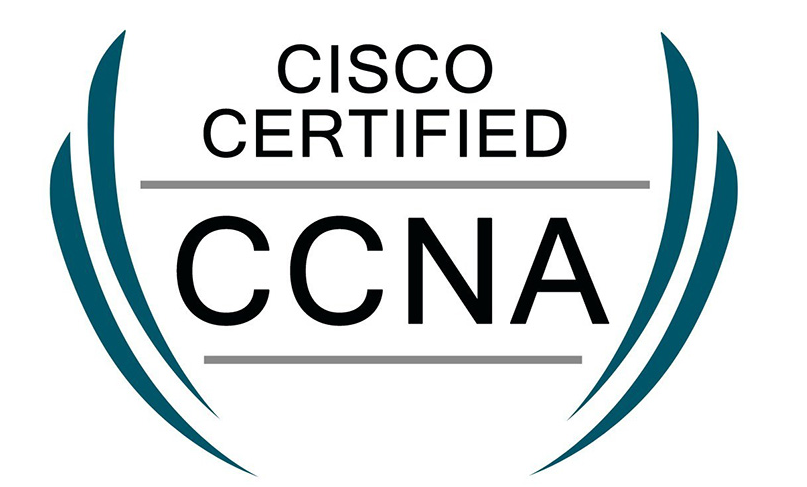
The CCNA (Cisco Certified Network Associate) is a globally recognized certification designed for individuals looking to build a solid foundation in networking. It equips candidates with essential knowledge in areas such as routing, switching, network protocols, and basic security measures. A professional holding the CCNA certification is adept at managing and configuring small to medium-sized networks, making it an ideal starting point for those entering the field of networking. In the context of CCNA vs CCNP, the CCNA serves as the stepping stone, offering a broad introduction, whereas the CCNP delves into specialized, advanced topics. This distinction is crucial for those deciding which certification aligns best with their career trajectory.
CCNA Exam Details
- Exam Name: CCNA 200-301
- The core exam for earning the CCNA certification, covering a wide range of essential networking topics.
- Duration: 120 minutes
- Candidates are given 120 minutes to complete the exam, which consists of multiple question types designed to evaluate both theoretical knowledge and practical skills.
- Topics Covered:
- Network fundamentals: Basics of networking concepts, devices, and protocols.
- IP connectivity: Routing, addressing, and connectivity within a network.
- IP services: Key network services such as DNS, DHCP, and NAT.
- Security fundamentals: Introduction to securing networks, firewalls, and threat detection.
- Automation and programmability: Basics of network automation and software-driven networking.
- Question Types:
- Includes multiple-choice questions, drag-and-drop scenarios, and performance-based simulations to test real-world networking abilities.
- Languages Available: Multiple languages
- The exam is available in several languages, allowing candidates from around the world to take part.
- Prerequisites: None
- No prior certification or work experience is required, making it accessible to those new to networking.
- Purpose:
- The CCNA exam validates foundational networking skills and serves as a gateway to more advanced certifications. It lays the groundwork for further specialization in the CCNA vs CCNP career path.
What is CCNP?
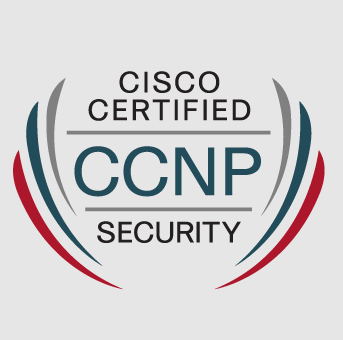
The CCNP (Cisco Certified Network Professional) is an advanced certification designed for networking professionals who aspire to deepen their expertise and tackle complex networking challenges. Unlike its foundational counterpart, the CCNA, the CCNP focuses on a comprehensive understanding of various technologies, including advanced routing, switching, security, and network design. Candidates must pass a core exam and one or more concentration exams tailored to specific domains, such as security or collaboration.
This rigorous certification not only enhances a professional’s technical acumen but also distinguishes them in a competitive job market. As the landscape of technology evolves, the CCNP empowers individuals to implement and manage sophisticated network solutions effectively. In the discussion of CCNA vs CCNP, it’s clear that while both certifications hold immense value, the CCNP signifies a higher level of proficiency, setting the stage for career advancement and specialization in networking.
Understanding the nuances of CCNA vs CCNP is crucial for any networking professional aiming to excel and specialize in this dynamic field.
CCNP Exam Details
- Exam Name: CCNP Core Exam + Concentration Exam
- To earn the CCNP certification, candidates must pass two exams: a core exam and a concentration exam of their choice, which allows them to specialize in specific areas.
- Duration: 120 minutes for each exam
- Both the core and concentration exams are typically 120 minutes long, evaluating a broad spectrum of knowledge and expertise.
- Core Exam Topics Covered:
- Enterprise infrastructure: Advanced routing, switching, and infrastructure technologies.
- Virtualization: Concepts and implementations within networking environments.
- Security: Enterprise network security protocols and systems.
- Network assurance: Monitoring, troubleshooting, and ensuring network performance.
- Automation: Advanced automation, programmability, and software-defined networking.
- Concentration Exam Options:
- Enterprise: Advanced routing and services.
- Security: Firewalls, VPNs, and intrusion prevention.
- Collaboration: Cisco Unified Communications and video technologies.
- Data Center: Network infrastructure, automation, and security within data centers.
- Service Provider: Core networking for service providers.
- Question Types:
- Includes multiple-choice, drag-and-drop, and complex performance-based scenarios to assess real-world proficiency in network design and implementation.
- Languages Available: Multiple languages
- The exam is available in various languages to accommodate global professionals.
- Prerequisites: None, but experience recommended
- Although no formal prerequisites are required, candidates are expected to have prior knowledge or experience in networking concepts, particularly at the CCNA level.
- Purpose:
What’s the Difference Between CCNA vs CCNP?
| Aspect | CCNA (Cisco Certified Network Associate) | CCNP (Cisco Certified Network Professional) |
| Level | Entry-level certification, ideal for individuals starting their careers in networking and IT. | Professional-level certification designed for those seeking to advance their networking expertise. |
| Target Audience | Beginners, students, and entry-level IT professionals aiming to establish foundational networking skills. | Mid-career networking professionals, engineers, and specialists looking to deepen their knowledge and skills in specific areas. |
| Focus Areas | Emphasizes fundamental networking concepts, including basic routing and switching, network protocols, and security basics. | Covers advanced topics such as complex routing and switching protocols, security protocols, network design, automation, and optimization techniques. |
| Exam Structure | Consists of a single comprehensive exam (200-301) that assesses foundational networking knowledge. | Comprises a core exam that tests broad networking skills, along with one or more concentration exams focused on specialized areas (e.g., Security, Collaboration, Data Center). |
| Prerequisites | No formal prerequisites; accessible to anyone interested in networking. | No formal prerequisites; however, candidates are expected to have practical networking experience, ideally at the CCNA level. |
| Career Opportunities | Opens doors to entry-level positions such as network technician, IT support specialist, and help desk technician. | Leads to advanced positions such as network engineer, network architect, security consultant, and infrastructure specialist. |
| Duration | The exam is 120 minutes long, allowing candidates to demonstrate their knowledge within a set time frame. | Each exam (core and concentration) is also typically 120 minutes long, allowing for thorough assessment of advanced skills. |
| Specialization Options | The CCNA certification covers a wide range of general networking topics without specific specialization. | Offers multiple concentration paths for specialization, allowing candidates to focus on areas like Security, Collaboration, Data Center, Service Provider, and more. |
| Certification Validity | Valid for three years, requiring renewal through re-examination or continued education to maintain the certification. | Also valid for three years, with similar renewal requirements through re-certification or professional development activities. |
| Recognition and Value | Recognized as a foundational certification in the IT industry, serving as a stepping stone for further certifications. | Highly regarded in the industry, the CCNP demonstrates advanced competency, making professionals more marketable and potentially leading to higher salaries. |
| Learning Resources | Offers various study materials, including Cisco’s official guides, online courses, and practice exams for beginners. | Provides access to extensive resources, including in-depth study guides, hands-on labs, online courses, and community forums for advanced topics. |
CCNA vs. CCNP Career Differences
When navigating the landscape of networking careers, understanding the distinctions between CCNA vs. CCNP is essential. The CCNA certification primarily equips individuals for entry-level roles such as network technicians, support specialists, and IT helpdesk personnel. These positions focus on implementing and troubleshooting basic network configurations, providing a solid foundation in networking principles.
In contrast, the CCNP certification caters to seasoned professionals seeking to elevate their expertise. It unlocks advanced career opportunities such as network engineers, architects, and security specialists. These roles demand a deeper understanding of complex network designs, advanced security protocols, and performance optimization techniques.
While both certifications are invaluable, the path from CCNA vs. CCNP signifies a progression from foundational knowledge to specialized proficiency. The choice between them ultimately hinges on career aspirations, with the CCNP offering greater potential for advancement and specialization in the rapidly evolving field of networking.
Whether you start with CCNA vs CCNP, each certification builds a unique skill set that can propel your career in the ever-evolving tech landscape.
Similarities Between CCNA vs CCNP
- Vendor Recognition: Both certifications are developed by Cisco, a leading authority in networking technologies, ensuring high industry recognition.
- Fundamental Networking Concepts: Each certification emphasizes essential topics such as routing and switching, providing a solid foundation for networking professionals.
- Core Knowledge Areas: Both CCNA and CCNP cover similar areas, including IP addressing, security protocols, and network design principles.
- Practical Application: Candidates for both certifications must demonstrate hands-on experience and practical skills, preparing them for real-world networking challenges.
- Progressive Learning Path: The CCNA serves as a prerequisite for the CCNP, with many concepts building upon foundational knowledge.
- Emphasis on Troubleshooting: Both certifications stress the importance of troubleshooting methodologies to diagnose and resolve networking issues effectively.
- Career Advancement: Both the CCNA and CCNP certifications aim to enhance networking proficiency and provide valuable credentials for career progression.
CCNA vs CCNP Exam Requirements
| Aspect | CCNA (Cisco Certified Network Associate) | CCNP (Cisco Certified Network Professional) |
| Prerequisites | None; open to anyone interested in networking. | None, but practical networking experience is strongly recommended. |
| Core Exam | Single exam (200-301) covering foundational networking concepts. | Requires passing a core exam plus one or more concentration exams. |
| Exam Duration | 120 minutes for the CCNA exam. | 120 minutes for the core exam and each concentration exam. |
| Question Format | Multiple-choice, drag-and-drop, and performance-based questions. | Multiple-choice, drag-and-drop, and performance-based scenarios. |
| Study Materials | Recommended study materials include Cisco’s official guides, online courses, and practice exams. | In-depth resources such as advanced study guides, hands-on labs, and community forums. |
| Exam Languages | Available in multiple languages to accommodate a global audience. | Also available in various languages, ensuring accessibility. |
| Target Skills | Focuses on basic networking skills, including routing, switching, and security fundamentals. | Emphasizes advanced skills such as network design, security protocols, and automation techniques. |
| Renewal Requirements | Certification is valid for three years; renewal through re-examination or continuing education is necessary. | Certification is valid for three years, requiring re-certification or professional development to maintain status. |
| Cost | Exam fees vary by location but typically range from $300 to $400. | Core exam and concentration exam fees are generally higher, often totaling between $300 to $450 per exam. |
Conclusion
In summation, the comparison of CCNA vs CCNP highlights critical pathways in networking careers. The CCNA serves as a foundational stepping stone, equipping individuals with essential skills to address basic networking challenges. Conversely, the CCNP signifies a transition to advanced expertise, empowering professionals to navigate complex network environments with confidence.
Both certifications are invaluable in the evolving tech landscape, catering to distinct career aspirations. Ultimately, choosing between CCNA vs CCNP hinges on one’s professional goals, with each offering unique opportunities for growth and specialization in the dynamic realm of networking. Embracing either path promises a robust career trajectory in this ever-demanding field.
In the realm of networking, choosing between CCNA vs CCNP is not just a decision; it’s a pathway to unlocking your professional potential.
FAQ: CCNA vs CCNP
- What is the primary difference between CCNA vs CCNP?
The CCNA certification focuses on foundational networking skills, while CCNP delves into advanced networking concepts and specialization. - Do I need CCNA before pursuing CCNP?
While it’s not mandatory, having the CCNA certification is highly recommended as it provides essential knowledge that supports the CCNP curriculum. - What career opportunities arise from CCNA vs CCNP certifications?
The CCNA opens doors to entry-level positions, such as network technician, while the CCNP is geared towards roles like network engineer and architect. - How long is each certification valid for in the CCNA vs CCNP comparison?
Both CCNA and CCNP certifications are valid for three years, requiring renewal through re-examination or continuing education. - What is the exam format for CCNA vs CCNP?
The CCNA consists of a single exam, whereas the CCNP requires passing a core exam plus one or more concentration exams. - What study materials are best for CCNA vs CCNP preparation?
Recommended resources include official Cisco guides, online courses, and hands-on labs for both CCNA and CCNP exams. - Is there a significant cost difference between CCNA vs CCNP?
Yes, while CCNA exams typically cost between $300 to $400, CCNP exams generally range from $300 to $450 for each exam. - Can I take CCNP without CCNA?
Yes, you can pursue the CCNP without the CCNA, but having the foundational knowledge from CCNA will greatly benefit your understanding. - What skills will I gain from CCNA vs CCNP certifications?
The CCNA equips you with basic networking skills, while the CCNP enhances your ability to design and manage complex networks.
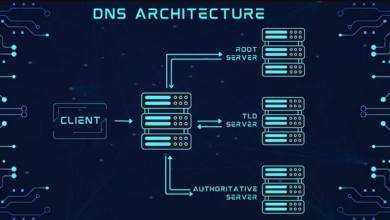
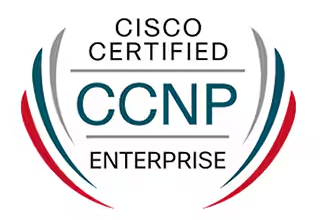



Your point of view caught my eye and was very interesting. Thanks. I have a question for you.